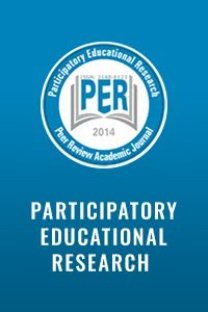The Effect of Different Metacognitive Skill Levels on Preservice Chemistry Teachers' Confidence in Technological Pedagogical Content Knowledge
The aim of the study was to determine the metacognitive
skill levels of preservice chemistry teachers and to investigate the effect of
different metacognitive skill levels on their confidence in technological
pedagogical content knowledge. In the study, survey method which is one of the
quantitative research methods was used to determine the effect of different
metacognitive skill levels on confidence in technological pedagogical content
knowledge. The study was conducted during 2015-2016 fall semester. A total of
75 preservice chemistry teachers participated in the study. The participants of
the study were comprised of preservice chemistry teachers attending the Faculty
of Education in a public university. As a data collection tool, The
Metacognitive Activities Inventory (MCA-I) which was developed by Cooper and
Sandi-Urena (2009) and adapted into Turkish by Temel, Dinçol and Yılmaz (2011)
was applied to determine preservice chemistry teachers' metacognitive skill
levels. Also, the Technological Pedagogical Content Knowledge Confidence Survey
(TPACKCS) developed by Graham, Burgoyne, Cantrell, Smith, and Harris (2009) and
adapted into Turkish by Timur and Taşar (2011) was used to determine preservice
chemistry teachers' confidence in technological pedagogical content knowledge.
Firstly, the data obtained from MCA-I was analyzed. Three groups were formed by
using the grouping method developed by Cooper, Sandi-Urena and Stevens (2008).
Then, one-way MANOVA test was employed in determining the effects of preservice
chemistry teachers' metacognitive skill levels on their technological
pedagogical content knowledge, technological pedagogical knowledge,
technological content knowledge, and technological knowledge. At the end of the
study, the obtained one-way MANOVA test results were presented and interpreted.
Keywords:
confidence, metacognitive skill levels preservice chemistry teachers, technological pedagogical content knowledge,
___
- Cooper, M. M., & Sandi-Urena S. (2009). Design and validation of an instrument to assess metacognitive skilfulness in chemistry problem solving. Journal of Chemical Education, 86(2), 240-245.
- Cooper, M. M., & Sandi-Urena S., Stevens, R. (2008). Reliable multi method assessment of metacognition use in chemistry problem solving, Chemistry Education Research and Practice, 9, 18–24.
- Doering, A., Veletsianos, G., Scharber, C., & Miller, C. (2009). Using the technological, pedagogical, and content knowledge framework to design online learning environments and professional development. Journal of Educational Computing Research, 41(3), 319-346.
- Fraenkel, J.R., & Wallen, N.E. (2006). How to design and evaluate research in education. New York: McGraw-Hill.
- Graham, C. R., Burgoyne, N., Cantrell, P., Smith, L., St. Clair, L., & Harris, R. (2009). TPACK development in science teaching: Measuring the TPACK confidence of in-service science teachers, TechTrends, Special Issue on TPACK, 53(5), 70-79.
- Keengwe, J., & Maxfield, M. (Eds.). (2015). Advancing Higher Education with Mobile Learning Technologies: Cases, Trends, and Inquiry-Based Methods. Hershey, PA: IGI Global.
- Koehler, M.J., & Mishra, P. (2008). Introducing TPCK. AACTE Committee on Innovation and Technology (Ed.), the handbook of technological pedagogical content knowledge (TPCK) for educators (pp. 3-29). Mahwah, NJ: Lawrence Erlbaum Associates.
- Mishra, P., & Koehler, M.J. (2006). Technological pedagogical content knowledge: A framework for integrating technology in teacher knowledge. Teachers College Record, 108(6), 1017-1054.
- Özsoy, G. (2006). Problem çözme ve üstbilis [Problem solving and metacognitive]. Ulusal Sınıf Ögretmenligi Kongresi Bildirileri [National Congress of Elementary Teaching] (Ankara, Gazi University, May-2006). Ankara: Kök Publishing.
- Shulman, L. S. (1987). Knowledge and teaching: foundations of the new reform. Harvard Educational Review, 57(1), 1-22.
- Temel, S., Dinçol, S., & Yılmaz, A. (2011). Metacognition und problemlösen [Metacognitive and problem solving]. GDCh Wissenschaftsforum Chemie 2011, Bremen. Timur, B., & Taşar, M. F. (2011). The adaptation of the technological pedagogical content knowledge confidence survey into Turkish. Gaziantep University Journal of Social Sciences, 10(2), 839 -856.
- ISSN: 2148-6123
- Yayın Aralığı: Yılda 6 Sayı
- Başlangıç: 2014
- Yayıncı: Özgen KORKMAZ
